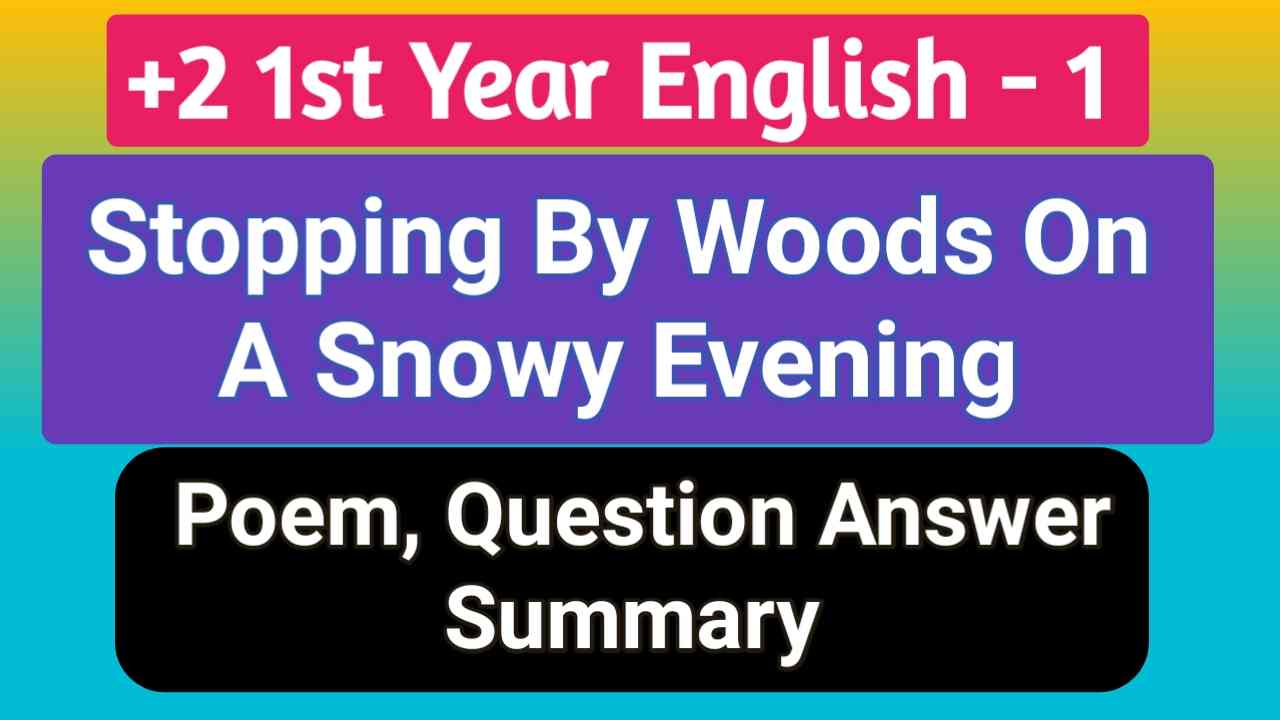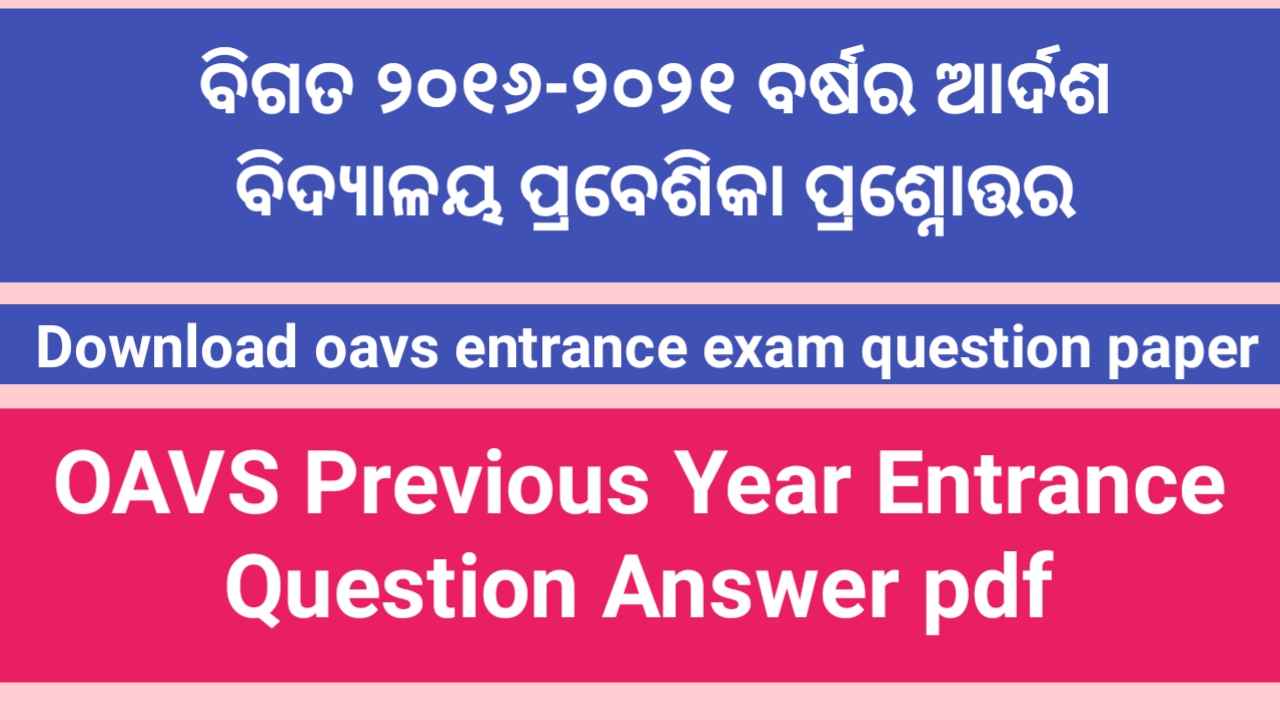Stopping By Woods On A Snowy Evening Poem Summary And Question Answer Plus 2 English
MCQ Question Answer of the poem Stooping By Woods On A Snowy Evening
Stopping By Woods On A Snowy Evening
By Robert Frost
The Poem:
Whose woods these are I think I know
His house is in the village though
He will not see me stopping here
To watch his woods fill up with snow.
My little horse must think it queer
To stop without a farm house near
Between the woods and frozen lake
The darkest evening of the year.
He gives his harness bells a shake
To ask if there is some mistake
The only other sound's the sleep
Of easy wind and downy flake.
"The woods are lovely, dark and deep
But I have promises to keep
And miles to go before I sleep
And miles to go before I sleep."
Stanza -1
Whose woods these are I think I know
His house is in the village though
He will not see me stopping here
To watch his woods fill up with snow.
Summary : The poet stopped in a snowy forest. The owner of the forest was not present there at that time. The poet says he knows him. His house is in the near by village. He won't see him stopping there because he won't think that a traveller can stop in the woods at such an odd hour. He is a practical person. But poets have a strange liking. They start where others close. So the poet stopped in the jungle on a snowy evening.
Stanza - 2
My little horse must think it queer
To stop without a farm house near
Between the woods and frozen lake
The darkest evening of the year.
Summary: The poet's horse won't accept the poet's stopping easily. He might think that there was no farm house nearby. Why did the poet stop between the frozen lake and the woods then ? Besides, it is the darkest evening of the year. Does any sane person stop in a snowy forest at such an odd hour ?
Stanza - 3
He gives his harness bells a shake
To ask if there is some mistake
The only other sound's the sleep
Of easy wind and downy flake.
Summary: The horse of the poet looked disgusted waiting at that uninteresting place. He wanted to warn the poet and to break his concentration. He doubted that the poet had stopped there by mistake. So he gave his harness bells a shake. The poet heard the sound. Along with this sound he heard the sound of sweep of easy wind and downy flake.
Stanza - 4
"The woods are lovely, dark and deep
But I have promises to keep
And miles to go before I sleep
And miles to go before I sleep."
Summary: The poet saw the woods. It looked lovely, dark and deep. The poet was fascinated by the woods. He wanted to watch such spiritual beauty for ever. But the horse's harness bell brought him to earth, to reality. He now realised that he had promises to keep. To fulfill the promises he must walk miles. But life is short. At Any moment death may come. Before that you must reach near goal. fulfill your promises, otherwise at the verge of death, you will cry -O Death ! Please wait. I have not yet finished my duties and responsibilities.
Summary of the Poem Stopping By Woods On A Snowy Evening
Once the Poet, while returning to his farm house through the woods in the evening time, stopped his horse, got down and watched the jungle beauty on the snowy evening keenly and enjoyed the beauty whole heartedly. Since he was endowed with a poetic temperament, he got charmed. But his horse could not take interest in the Frozen swamp. He expressed his disgust and gave his harness bells a shake to ask if the poet had
The poet was in an absorbing mood. The warning of the horse brought him from the fancy world. He came to reality and realised that even if the jungle is lovely, dark and deep, he can't stay there permanently, because he has promises to keep. He has to fulfill a lot of ambitions before death. So he left the place.
Key Notes of the poem Stopping By Woods On A Snowy Evening
- The poet stopped in a Jungle on a snowy evening.
- His horse was with him.
- The poet watched the beauty of the Jungle.
- The horse felt restless and bored.
- The owner of the forest was in the nearby village.
- He could not know the poet stopping there.
- The poet heard the sound of an easy wind.
- There was the sound of downy flakes.
- The horse shook his harness bells to alert the poet.
- The poet returned to reality.
- He realised that man would not stay in the jungle indefinitely.
- He has a society, materialistic, and desire.
- He has hopes, dreams and promises.
- The Jungle beauty can appeal to the spirit.
- The Jungle cannot fulfill the human promises.
- He has to walk miles before death.
- He returned home immediately. after materialistic desires devoured his spirit.
Question (1) How is 'woods' different from 'forest' ?
Answer. The 'woods' refers to small jungles near which there can be locality. No wild beasts are there. Forest is a deep, dense, vast patch of land covering trees and trees. lions, tigers live there.
Question (2) Where does the rider stop ? Answer. The rider stops between the woods and frozen lake.
Question (3) Why does he stop ?
Answer. He stops in the woods to watch the serene beauty of the snowy jungle in the evening.
Question (4) "He will not see me stopping here" - what does this expression mean ? Answer. The poet here says that the owner of the jungle was living in the village nearby. He won't see him stopping there on a snowy evening.
Question (5) Why does the horse give his harness bells a shake ?
Answer. The horse gave his harness bells a shake to inform the poet if he had any wrong.
Question (6) What is the 'only other sound' besides that of harness bells ?
Answer. Besides the harness bells the only other sound's the sweep of easy wind and downy flake.
Question (7) Why does the poet use the expressions 'dark', 'deep', 'darkest ' ?
Answer. The poet uses the words 'dark', 'deep', 'darkest' because it was the darkest evening of the year. The jungle was dark too.
Question (8) How do the speaker, the owner of the woods and the horse react to the beauties of nature ?
Answer. The speaker fell in love with the beauty of nature. The horse and the owner were materialistic. They had no sense of beauty, no poetic feelings. They here detached towards the woods.
Question (9) What picture of natural beauty do you get from the poem ?
Answer. The woods itself offers natural beauty through frozen lake, downy flake, sweep easy wind, deep, dense foliage.
Question (10) In the final stanza, the speaker says that he is not yet ready to 'sleep'. What has he to do before he can take a rest ?
Answer. Before he can take rest he wants to fulfill his wish, ambitions, dreams, promises.
Question (11) What does the expression, "The darkest evening of the year" suggest? Does it mean "the longest night of the year" or "the most depressing state of his mind" ? Give a reasoned answer.
Answer. "The darkest evening of the year" refers to the longest night of the year. The poet was in a jolly mood. There was no question of depression.
Question (12) A four-line stanza is called a quatrain. How many quatrains are there in the poem ?
Answer. There are four quatrains in the poem. Post- reading Activities
(1) Arrange the following sentences in their logical order to narrate the theme of the poem.
(a) He passes by the woods which are lovely, dark and
(b) The poet is riding his horse to a destination.
(c) But he remembers that he has promises to keep before he can rest.
(d) It is snowing and the wind blows gently. (e) The beauty of the woods tempts him to stop and enjoy the sight.
(f) It is an evening in winter.
Answer:
(a) It is an evening in winter.
(b) It is snowing and the wind blows gently. (c) The poet is riding his horse to a destination.
(d) He passes by the woods which are lovely, dark and deep.
(e) The beauty of the woods tempts him to stop and enjoy the sight.
(f) But he remembers that he has promises to keep before he can rest.
Question 2. What is the rhyme scheme in this poem ?
Answer. The rhyme scheme in the first quarter is AABA.
The rhyme scheme in the second quarter in is AABA.
The rhyme in 3rd quatrain is AABA.
The rhyme in 4th quatrain is AAAA.
MCQ Question Answer of the poem Stooping By Woods On A Snowy Evening
Stopping by woods on a snowy evening
1. What does the expression mean ‘And miles to go before I
sleep’
(A) a long life of rest and sleep
(B) a long distance to be travelled by the poet
(C) a long journey of life before the poet leaves for
heavenly rest
(D) None of the above
Answer is (C) a long journey of life before the poet leaves
for heavenly rest
2. Why is the poet not willing to stay more near the wood ?
(A) He has no interest to say
(B) He has an urgent work
(C) His horse is unwilling to stay
(D) He has promises to keep
Answer is (D) He has promises to keep
3. The poet described about the woods as _______
(A) lovely, dark and deep
(B) dense, dangerous , difficult
(C) natural, attractive, enjoyable
(D) None of the above
Answer is (A) lovely, dark and deep
4. The poem “Stopping By Snowy Evening” is written by ______
(A) William Wordsworth
(B) Thomas Hardy
(C) John Keats
(D) Robert Frost
Answer is (D) Robert Frost
5. _______ is the attraction in this poem described by the
poet.
(A) nature
(B) matter
(C) a great responsibility
(D) a great person
Answer is (A) nature
6. The poem “Stopping By Woods on a Snowy Evening” was a
great favourite of _______
(A) Jawaharlal Nehru
(B) R. N. Tagore
(C) Sarojini Naidu
(D) Khushwant Singh
Answer is (A) Jawaharlal Nehru
7. The poet stops his horse by some _____ on a snowy
evening.
(A) sea beach
(B) forest
(C) river bank
(D) woods
Answer is (D) woods
8. The journey through the woods is described the journey of
through _____ itself.
(A) heaven
(B) sea
(C) hill
(D) life
Answer is (D) life
9. At which time of the day the poet was passing by the
woods ?
(A) evening
(B) morning
(C) night
(D) afternoon
Answer is (A) evening
10. The poet usually stops at ________
(A) at a cottage
(B) at a farm house
(C) at a guest house
(D) at an inn
Answer is (B) at a farm house
11. Why did the horse feel strange and uncomfortable ? Because
(A) stopping in a frozen land life is at risk
(B) stopping in the mid of the forest where life is full of
danger
(C) stopping on the way where there is no farm house
(D) None of the above
Answer is (C) stopping on the way where there is no farm
house
12. What is the meaning of the word ‘queer’ ?
(A) sound
(B) stop
(C) search
(D) strange
Answer is (D) strange
13. Where does they usually stop ?
(A) at a guest house
(B) at an inn
(C) at a cottage
(D) at a farm house
14. What is the meaning of the word ‘little’ in the poem
Stopping By Woods on a Snowy Evening.
(A) short
(B) small
(C) nothing
(D) humble
Answer is (D) humble
15. The woods are covered with ____ that described in the
poet stopping by woods on a snowy evening.
(A) rain water
(B) trees
(C) snow
(D) fruits
Answer is (C) snow
16. The owner of the woods lives in a _______
(A) riverside
(B) hill top
(C) town
(D) village
Answer is (D) village
17. He will not see me stopping here. In this sentence ‘He’
refers to _____
(A) the God
(B) the Nature
(C) the poet of the poem
(D) the owner of the woods
Answer is (D) the owner of the woods
18. What is the meaning of the word ‘woods’ in the poem
stopping by woods on a snowy evening?
(A) jungle
(B) an area of trees, smaller than a forest
(C) a hillside
(D) forest
Answer is (B) an area of trees, smaller than a forest
19. The harness bells is tied with the neck of ______ in the
poem stopping by woods on a snowy evening.
(A) ox
(B) donkey
(C) horse
(D) bullock
Answer is (C) horse
20. What is the meaning of the word ‘downy flake’ in the
poem stopping by woods on a snowy woods ?
(A) down falling logs
(B) down falling water
(C) down falling snow
(D) down falling stones
Answer is (C) down falling snow
21. Why does the horse shake the harness bells ?
(A) to show that he is hungry
(B) to show some mistake
(C) to show some emergency
(D) to show some fun
Answer is (B) to show some mistake
22. Beside from the sounds of harness bells, there are other
natural sounds near the woods ? What are they ?
(A) sounds of easy wind and downy flake
(B) sounds of spirits and ghosts
(C) sound of animals and spring
(D) sounds of stones and rustling of trees
Answer is (A) sounds of easy wind and downy flake
23. A mile is a long of __________
(A) a distance of 1.6 kilometres
(B) a distance of 1 kilometres
(C) a distance of 1.2 kilometres
(D) a distance of 1.7 kilometres
Answer is (A) a distance of 1.6 kilometres
You can download the poem Stopping By Woods On A Snowy Evening Poem Summary And Question Answer Plus 2 English pdf by clicking on the download link below.




Look number 13 answer is not mention
ReplyDeleteThis comment has been removed by a blog administrator.
ReplyDeleteCan anyone answer these (stanza-1(
ReplyDeleteQ:What does poet think?
Q:What does poet know?
Q:What do wood symbolize?
Q:What is poet's view about woods?
Q:Whose house is in the village?
Q:Who will not see to stop here?
Q:What is significant of snow?